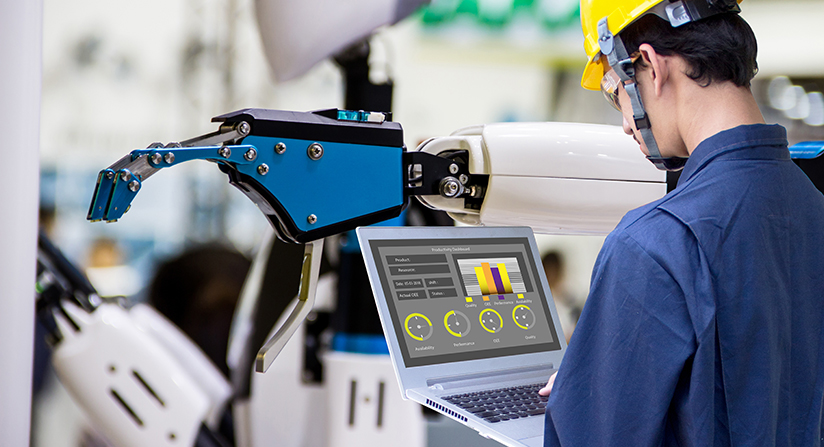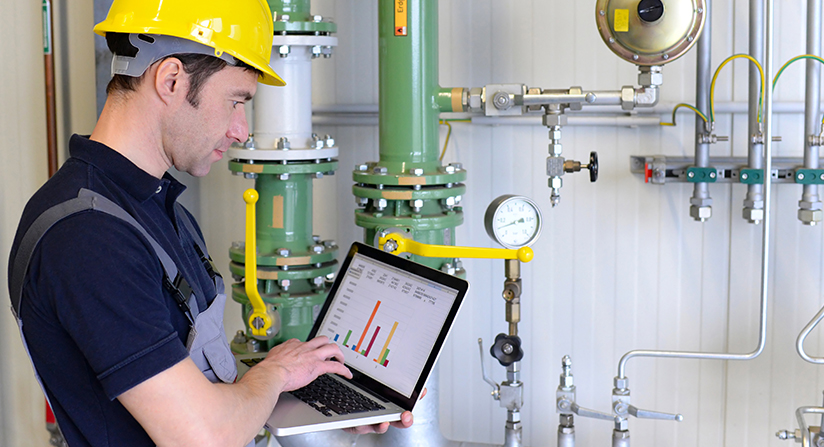There has been a big shift from the way manufacturers worked in the past thanks to modern technologies that streamline operations.
Long ago, factories hired a large number of workers to carry out each activity – this consumed more time and it could be a bit chaotic. Today, manufacturing tasks are automated and accomplished efficiently with the help of high-tech machines and other tools.
Automation is nothing but the use of controlled systems such as robots, computers, and IT for managing machines and processes to replace human efforts. The goal of automation is to improve the quality and flexibility of manufacturing processes. Fueled by bots, automation eliminates data redundancy while automating repetitive, rule-based tasks with a scheduled setup.
Automation has drastically transformed factory floors, the nature of employment, the quality of end products as well as the economics of the industry. The world is on the cusp of an innovative automation era and is rapidly evolving in terms of robotics, artificial intelligence, and machine learning.
Automated manufacturing systems perform activities such as production, assembling, inspection, and material handling with minimal human assistance.
1. Automation is an effective solution to growing labor shortage problems
The manufacturing sector has encountered an increasing problem of a labor shortage. Manufacturers find it hard to get good employees with skills that can add to productivity. Companies seeking to replace those workers who are retiring have a hard time finding good replacements.
2. Increased worker’s safety
Every manufacturing process is different depending on the nature of goods produced. Machines are the workhorse of almost every small and mid-sized manufacturing business.
Certain manual assembly of parts and components can be dangerous, if not done meticulously. When such tasks are automated, it becomes easy for organizations to stay in compliance with government regulations and other worker protocols. Business owners can be assured that their workers are safe and risk-free.
3. Increased production capacity
Some human limitations and labor laws restrict workers to do work. However, machines have no limitations and can continue to work 24/7 without any breaks, shift changes, or human interaction. Automation enhances the quality and capacity of production processes. Automated systems can work rigorously throughout the day without any human intervention.
4. Reduced employee cost
It’s a misconception that automated systems are a huge expense. Yes, of course, it costs money to get the machines up and running, but once deployed, day-to-day work becomes streamlined. Spending once on the machines is less expensive than ongoing payments to employees.
Menial and repetitive tasks done by workers on the shop floor can be accomplished by machines. So, why should you pay an arsenal of employees when a single machine can do it all?
5. Automation will lead to a better world
With sensors and high-tech components, an automated system not only improves the work environment and quality of the product but also helps employees to work more efficiently and focus on critical matters instead of menial ones.
A dynamic wave of automation in manufacturing
The benefits of automation usually show up in intangible ways such as increased productivity, higher sales, employee efficiency, improved work, and a streamlined structure. It has been predicted that the automation industry will evolve at a CAGR of 9.2% in the 2021-2028 period and is expected to go from USD 191.74 billion in 2021 to reach USD 355.44 billion in 2028.
Industries have never seen such huge opportunities. Rapidly accelerating the SMB’s digital transformation has encouraged smart manufacturing environments and enabled better-informed decisions, enhanced customer experience, and contributed to overall productivity.
ERP adds more to the business value
Since the automation industry is taking this great stride, the first step towards industrial automation is to invest in a reliable software solution that can help businesses manage every process and each operation in a streamlined manner. An Enterprise Resource Planning solution is the key to eliminating business roadblocks. It tracks the digital thread and helps organizations design an operational paradigm as per their requirements and priorities. ERP creates an optimized business environment by enhancing inter-team collaboration, unifying data, and helping decision-makers to track the performance of machines and humans.
To know more about how a manufacturing ERP solution can drastically change the way you do business, feel free to reach us at Contact Us.
Follow Us










